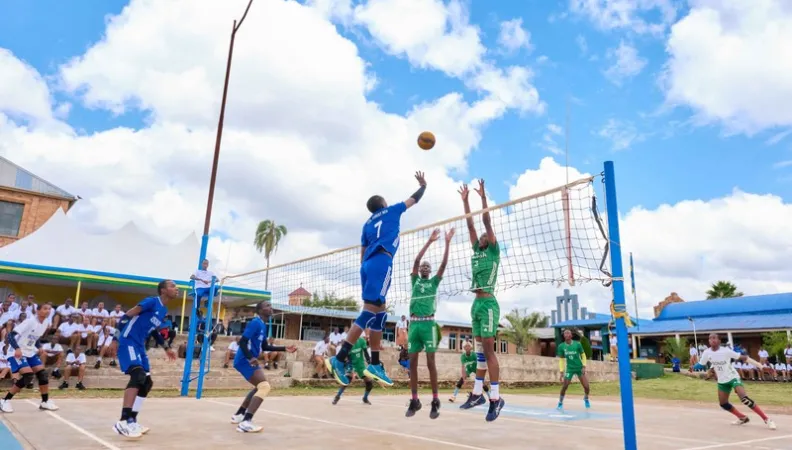Share the page
From Paris 2024 to Dakar 2026: can sport deliver on the Sport4SD promises?
Published on

One year on from the Paris Olympic and Paralympic Games and one year before the Dakar 2026 Youth Olympic Games, AFD Group remains fully committed to leveraging sport to drive sustainable development and social cohesion. This key period offers an opportunity to take stock of our progress. Where are we now? What commitments have been met, and how can sport continue to make an impact on sustainable development?
Last July, the Sport for Sustainable Development Summit (#Sport4SD), held at the Carrousel du Louvre, was attended by over 500 participants, including 55 Heads of State and Government, leaders of international organizations, and representatives from the sports world and civil society. Together, they committed to using sport as a vehicle for education and employment, health and nutrition, equality and inclusion, financing and impact measurement, sustainability and heritage. Since this summit took place, the commitments made have been transformed into concrete actions, raising the profile of sport as a driver of sustainable development on the international stage.
Policymakers and donors join the race
In recent months, major political forums have been focusing on sport. In the fall of 2024, the United Nations Summit, which led to the Pact for the Future, and the G7 Development Ministers, officially recognized sport as an important enabler of the sustainable development goals (SDGs) in their final communiqué. A few weeks later in November, the United Nations called on all Member States to incorporate sport into their national development strategies.
In February 2025, at the Finance in Common Summit (FiCS) held in Cape Town, public development banks also took a stand on this issue. They reaffirmed their commitment to collectively invest $10 billion by 2030 to promote sport as a vehicle for sustainable development, as well as launching a dedicated investment fund for the sector.
The International Olympic Committee (IOC) then took up the baton in June when it convened the first Olympism365 Summit in Lausanne, following on from the Sport4SD Summit. More than 100 organizations from 70 countries, including AFD, attended this conference. Forty-five new collective commitments were announced, amounting to over an estimated $200 million in investment over the next four years. In line with the commitment made last July, the IOC has also increased its Olympic Solidarity budget by 10% to $650 million for the 2025-2028 period.
From summits to action in the field
These commitments are already being transformed into concrete actions aligned with the Paris Agreement on Sport and Sustainable Development.
To promote education and employment, AFD, the IOC, and the Laureus Sport for Good Foundation have launched the second phase of the Sport for Education and Sustainable Livelihoods in Africa (SESLA) program. Twenty-five civil society organizations in 14 countries are currently receiving financing and capacity-building support to promote the social and professional integration of 12,800 young people in Africa, 50% of whom are girls, through sport. Evaluations are underway and research is currently being conducted to demonstrate how sport can help address these challenges.
FIFA is also upholding its commitment made last year to build 1,000 mini-soccer pitches in schools by 2030. Gianni Infantino, President of Fifa, announced the launch of a pilot project phase, in partnership with AFD, at the FiCS in Cape Town. The first pitches are scheduled to be built by the end of the year.
In the field of financing and impact measurement, last March, AFD hosted the launch of the Res Sportiva Institute, which will promote and publicize research on the impact of sport on sustainable development in order to identify innovative projects and methods, disseminate knowledge, and increase cooperation between investors, stakeholders in the sector, and public decision-makers.
AFD and IOC ramp up their efforts in Southeast Asia
Following a successful collaborative project in Africa, AFD and the IOC are joining forces in Southeast Asia with the launch of a youth program to prevent crime through sport in Laos, the Philippines, Thailand, and Vietnam. Co-developed with the Alliance of Sport in Criminal Justice, this program aims to incorporate sport into public policy for the long-term future to prevent youth crime and foster social ties. It will help structure regional networks for sharing expertise between representatives of the justice system, sports, and civil society, train professionals in the field, as well as informing research.
A call for proposals has also been launched today to finance innovative projects led by civil society representatives, with grants of up to €150,000 being awarded per project over an 18-month period. Further information on this call for proposals can be found here:
En route for Dakar 2026
This new momentum coincides with the appointment of Kirsty Coventry, the first woman and first African to be elected President of the International Olympic Committee. A multiple Olympic medalist and former Minister of Sports of Zimbabwe, Kirsty Coventry has made sustainable development and universal access to sports the priorities of her term.
All eyes are now on the Dakar 2026 Youth Olympic Games, a historic event for Africa. AFD has reaffirmed its commitment to making this event a driver of economic and social development, by granting an additional €20 million loan to the Senegalese government, increasing its financial support to €80 million in total. These Games will represent further progress in shaping the narrative that sport can be more inclusive, sustainable, and socially-responsible.
